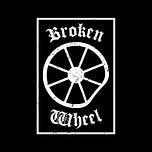There is an evil that I have seen under the sun, as it were an error proceeding from the ruler: folly is set in many high places, and the rich sit in a low place. I have seen slaves on horses, and princes walking on the ground like slaves.
Okay, you may not like these verses. For a lot of reasons, I think they can rub the reader in the wrong way.
Let’s walk through it and see if there is any wisdom for us within them. Many times, the Bible is telling us something we need but do not want to know.
First off, this is an evil, a perversion of how things should work, that emanates from the ruler.
So, what does the king do? He sets folly in high places. You don’t promote the people that can do the work but your friends.
This type of promotion in government and business should be familiar to you. Perhaps you have even had a front row seat to it.
Now Solomon takes this common form of corruption and then moves it to a place we are no longer as comfortable with.
The rich have been forced by the king to sit in a low place. Why would that be a problem? Shouldn’t those oppressors be put low?
Listen, being corrupt is not correlated with being rich, especially in economies that are free. Can you be corrupt and rich? Absolutely, but there is another word that correlates here.
Competence. If your wealth wasn’t obtained by inheritance or corruption, then you got your money like most people do.
You did something better than anyone else, whether that was an advantage in timing, quality, or efficiency.
So, if you have to pick, who do you want in the high places of government? The rich man or the fool? Obviously, you want someone with a proven track record who makes decisions at that scale.
Solomon in verse six has been talking about the high places of society. He then moves to metaphorical positions and uses some hair-raising language.
Slaves on horses and princes like slaves. Yikes. What are we to make of that?
To understand it, we need to understand the metaphor a bit better. If you knew a country had princes and slaves, who would you expect to be working the fields?
Right. This verse has it backwards. What does that mean? That expectations and the way things are “supposed” to work have been flipped.
Regardless of how we feel about the language, we have noticed a pattern, where the world as it “should” be is reversed. This is a pattern of chaos.
Look at the previous verse, and we clearly see the same pattern. What then are we to make of this?
That the person with character, know-how, and track record, i.e. the prince, has been placed in the position of a slave. The slave, who lacks these attributes, now sits as a king.
It is also important to remember that slavery in Solomon’s time was entered into at times willingly because someone could not pay their debt.
Who wants a bad businessman to act as a prince?
What is our verse saying then? That those that can act and behave like princes can be removed from those positions by corrupt rulers to give the rewards of those titles to their friends.
What can we do? Speak about this corruption. Remove it when we can. Do not allow shortsightedness or favoritism guide our hand.
Reward competence, not familiarity or unsubstantiated victimhood.














Share this post